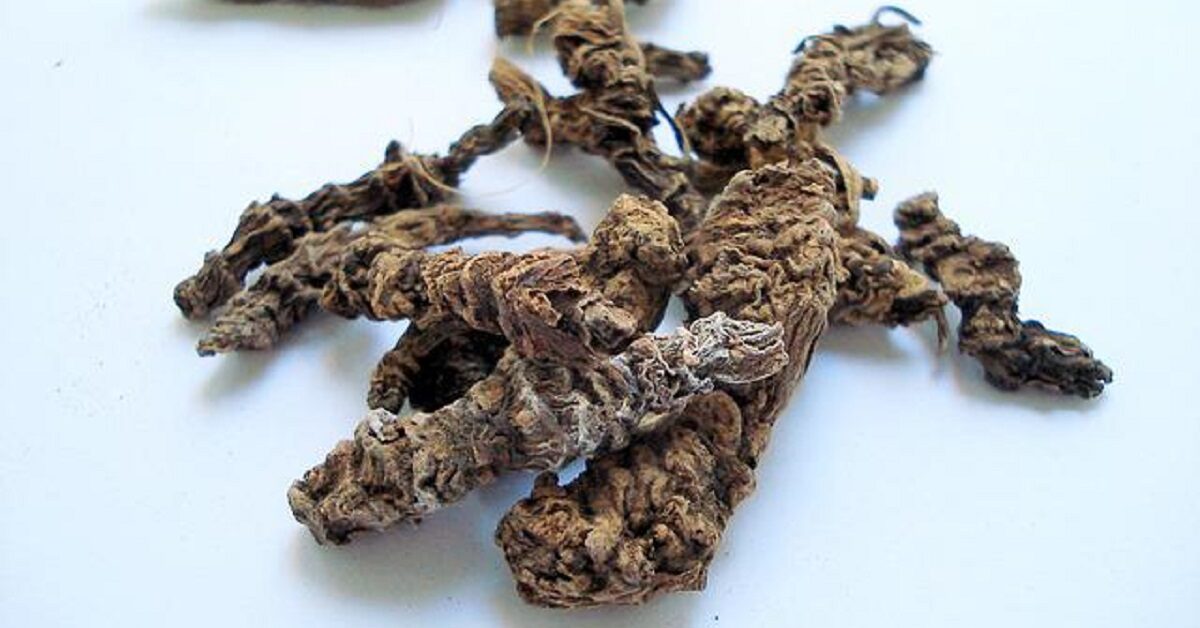
Valerian root and melatonin are supplements widely used as sleep aids.
Valerian root (Valeriana officinalis, sub-family: Valerianaceae; family: Caprifoliaceae) is a herbal supplement that has been used since ancient times as a mild sedative for managing sleep disorders, relievng anxiety and stress, and treating symptoms of nervous tension.
Melatonin (N-acetyl-5-methoxytryptamine) is a natural hormone produced by the pineal gland located in the brain. It helps to regulate the sleep-wake circadian rhythm.
Preparations of valerian and melatonin supplements are available over-the-counter (OTC) in the U.S. and Canada.
Valerian is available OTC as tablets, capsules, powder, tea bags, and tinctures prepared from the extracts of the roots, rhizomes (underground stems), and stolons (stems that grow horizontally on the ground) of the flowering plant.
Doctors may prescribe melatonin for the short-term management of circadian rhythm sleep disorders, such as jet lag, delayed sleep-wake phase disorder (DSWPS), sleep disorders in children, and sometimes shift work disorder.
However, because melatonin pills are available OTC, more people are using them as a supplement to improve sleep quality.
Two forms, natural and synthetic, are available OTC. The synthetic form is derived chemically from 5-Methoxytryptamine, while the natural form is sourced from the pineal gland of animals.
The synthetic (non-animal sourced) form of melatonin is generally preferred to the natural form due to concerns that the latter may be contaminated with viruses.
If you’ve been having sleeping difficulty and looking for information about the best sleep aid available, you may have learned that valerian and melatonin improve sleep quality.
This article offers an in-depth comparison between valerian and melatonin, including efficacy, dosing, side effects, and interactions.
We also answer your questions about whether they are safe for children and pregnant women.
Contents:
Valerian root extract for improving sleep quality
Melatonin for improving sleep quality
Valerian root vs. melatonin: Tabular presentation
A note to our readers on AASM recommendations

The information provided in this article is only for informational purposes. It is not in place of advice and care by a qualified medical professional.
We urge our readers to refrain from self-treatment but to talk to their healthcare providers before taking any herbal preparation or medication to improve sleep quality. Only a qualified professional can determine the best treatment regime for your sleep problems.
According to the American Academy of Sleep Medicine (AASM), while melatonin can be an option for some people with sleep timing-related problems, such as jet lag disorder and shift work disorder, clinicians should avoid using it to treat chronic insomnia in adults.
Jennifer Martin, a professor of medicine and a member of the AASM board of directors, suggested that people experiencing difficulty sleeping should first try to adopt healthier sleep habits to improve sleep quality. But if adopting healthier habits does not help, consult your healthcare provider for better treatment options. Your healthcare provider may prescribe behavior therapy, medication, or supplements, such as melatonin and herbal preparations.
Changes you can make to your bedtime routine for better sleep include:
- Consistently follow a daily sleep schedule
- Go to bed early enough to get at least 7 hours of sleep
- Get up at the same time daily
- Make your bedroom quiet and comfortable (that includes setting a temperature that is optimum for you)
- Stop using electronic devices at least 30 minutes before bedtime
- Don’t eat a large meal just before going to bed.
- Avoid stimulants such as caffeine late in the day
- Avoid alcohol and decrease fluid intake before bedtime
If you are an adult with chronic insomnia disorder, AASM recommends that you first try cognitive behavioral therapy for insomnia (CBT-I).
However, if you are unable to benefit from CBT-I or require a temporary adjunct, your doctor may consider medication or supplements.
Valerian root extract for improving sleep quality

Researchers have shown an increased interest in herbal supplements due to the adverse effects of medication commonly prescribed to treat sleep disorders. Such side-effects include impairment of the natural sleep cycle, disturbances in nervous system function, development of tolerance, dependence, and withdrawal symptoms.
Valerian is one of many herbs that have shown promise as an alternative to current prescription drugs.
Multiple research studies suggest that valerian is safe and effective for inducing sleep, improving sleep quality, and alleviating insomnia.
Nunes and Sousa (2011) conducted a comprehensive review of medical practice guidelines and studies published in peer-reviewed journals on the efficacy and safety of valerian for the treatment of sleep disorders and anxiety.
They concluded that evidence suggested that valerian was safe and that it may help reduce mild-to-moderate insomnia. However, they noted that due to the contradictory results and methodological problems, more randomized controlled trials with larger sample sizes were needed to:
- Accurately assess the ability of valerian to improve sleep
- Standardize dose
- Determine the optimum duration of treatment
- Determine the most effective preparations of the herb
Bent and colleagues (2015) conducted a systematic review of randomized and placebo-controlled trials of valerian to assess its efficacy in improving sleep quality.
They found that despite various methodological problems and differences in preparation methods, dosing, and length of treatment, results showed a statistically significant positive effect on sleep quality.
The authors concluded that available data suggested that valerian improved sleep quality without any significant side effects. They recommended further studies to standardize preparation and dosing.
Shinjyo and colleagues (2020) reported that studies conducted to assess the effectiveness of valerian as a herbal sleep aid yielded inconsistent results. The researchers conducted a study to evaluate the quality of available data on the effectiveness of valerian for treating sleep problems and determine why studies gave inconsistent results.
They concluded that the inconsistent results were due to the variable quality of herbal extracts used in various studies. According to the authors, valerian roots and rhizomes were likely the most effective parts of the flowering plant for treating sleeping problems. They suggested that the efficacy of valerian could be improved by combining it with other herbal preparations.
The researchers reported that all the studies they reviewed found valerian to be safe and that no severe adverse events were associated with the use of the herb in children and older adults.
The authors concluded that extracts of valerian roots and rhizomes were effective for promoting better sleep and managing sleep-related disorders. They recommended revising the quality control for valerian herbal supplements and standardization.

Tamadon and associates (2021) conducted a randomized, double-blind, placebo-controlled, crossover clinical trial to evaluate the effects of valerian on sleep quality, depression, and anxiety in hemodialysis (HD) patients.
They administered valerian to a group of 19 subjects and a placebo to a group of 20 subjects one hour before sleep every night for four weeks.
The multiphase trial involved swapping the treatment regimen for the two groups. The researchers recorded the subjects’ self-reported assessment of sleep quality, anxiety, and depression at the beginning and end of the trial. They scored the subjects on the Pittsburgh Sleep Quality Index, the Spielberger State-Trait Anxiety Inventory, and the Beck Depression Inventory.
Based on the subjects’ self-reports, the researchers concluded that valerian significantly improved sleep quality, and alleviated the symptoms of depression and anxiety in HD patients.
Several studies suggested that the sedative and anxiolytic effects of valerian may be potentiated by other sedative agents.
Choi and co-workers (2018) investigated the effects of valerian, cascade, and a mixture of valerian and cascade on sleep quality in animals. They found that the two plant products administered alone or as a mixture significantly reduced the latency time for sleeping (the time it takes for you to go from wakefulness to fast asleep). The plant products also enhanced non-REM and total sleep time, compared with a control group.
Ziegler and associates conducted a trial in which they compared the sedative and anxiolytic effects of valerian extract and oxazepam (a benzodiazepine).
They concluded after a six-week treatment of two groups with valerian extract (600 mg/day) and oxazepam (10 mg/day) that valerian was at least as effective as oxazepam for enhancing sleep quality.
Melatonin for improving sleep quality

Melatonin is involved in regulating the sleep-wake cycle through interactions with the retina and suprachiasmatic nucleus (SCN) located in the hypothalamus.
Doctors usually prescribe melatonin for the treatment of circadian rhythm-related (sleep-wake cycle) disorders, such as jet lag, shift work sleep disorder, delayed sleep-wake phase disorder, and problems related to seasonal photoperiod variations.
However, people also use melatonin as an OTC supplement for improving sleep quality and treating insomnia-related problems.
Circadian rhythms refer to the cyclical pattern of changes in biological systems that sync with the cycle of day and night. Circadian rhythms in animals include the regulation of the sleep-wake cycle, diurnal variations in blood pressure, temperature, and seasonal variations in reproduction functions.
Melatonin plays a role in ensuring the efficient functioning of the internal “biological clock” that regulates circadian rhythms. The pineal gland located in the brain increases the production of the hormone at night and decreases production during the day.
Synthetic and animal-sourced melatonin preparations may be administered as an oral liquid, oral tablet for swallowing, or placed under the tongue to dissolve (sublingual route).
Alternative administration routes include rectal suppositories and transdermal patches.
Melatonin may also be offered as immediate-release, extended-release, and combined immediate and extended-release formulations.
Research studies suggest that melatonin is effective for treating sleep-wake cycle-related disorders and that short-term use may improve sleep quality.
Brzezinski and associates (2005) reported that melatonin induced drowsiness and sleep. It also reduced the severity of sleep disturbances, such as age-related nocturnal awakenings.
The authors conducted a review and meta-analysis of available data on the effects of melatonin supplementation on sleep quality. They found that supplementation with melatonin
- Significantly reduced sleep onset latency (the time it takes to fall asleep),
- Increased sleep efficiency (the proportion of the time you spend sleeping while in bed)
- Increased total sleep duration
Costello and co-workers (2014) conducted a systematic review of the evidence supporting the use of melatonin for improving sleep quality. They concluded that melatonin may help in managing jet lag, improving insomnia, initiating sleep, improving sleep efficacy, and reducing daytime sleepiness. However, they were unable to find conclusive evidence backing its use for shift workers and recommended more high-quality studies.
Sletten and colleagues (2018) conducted a randomized, placebo-controlled, double-blind clinical trial to assess the effect of melatonin on the symptoms of delayed sleep-wake phase disorder (DSWPD).
DSWPD is characterized by delayed sleep initiation at bedtime and delayed waking in the morning.
The researchers tested the efficacy of 0.5 mg melatonin for improving sleep initiation in people diagnosed with DSWPD.

They found that a combination of behavioral sleep-wake scheduling (therapy that involves scheduling sleeping and waking times) and melatonin treatment improved the symptoms of delayed sleep-wake phase disorder (DSWPD).
The researchers concluded that melatonin had sleep-promoting effects in the subjects.
Valerian root vs. melatonin
[table id=1 responsive=”scroll” /]

